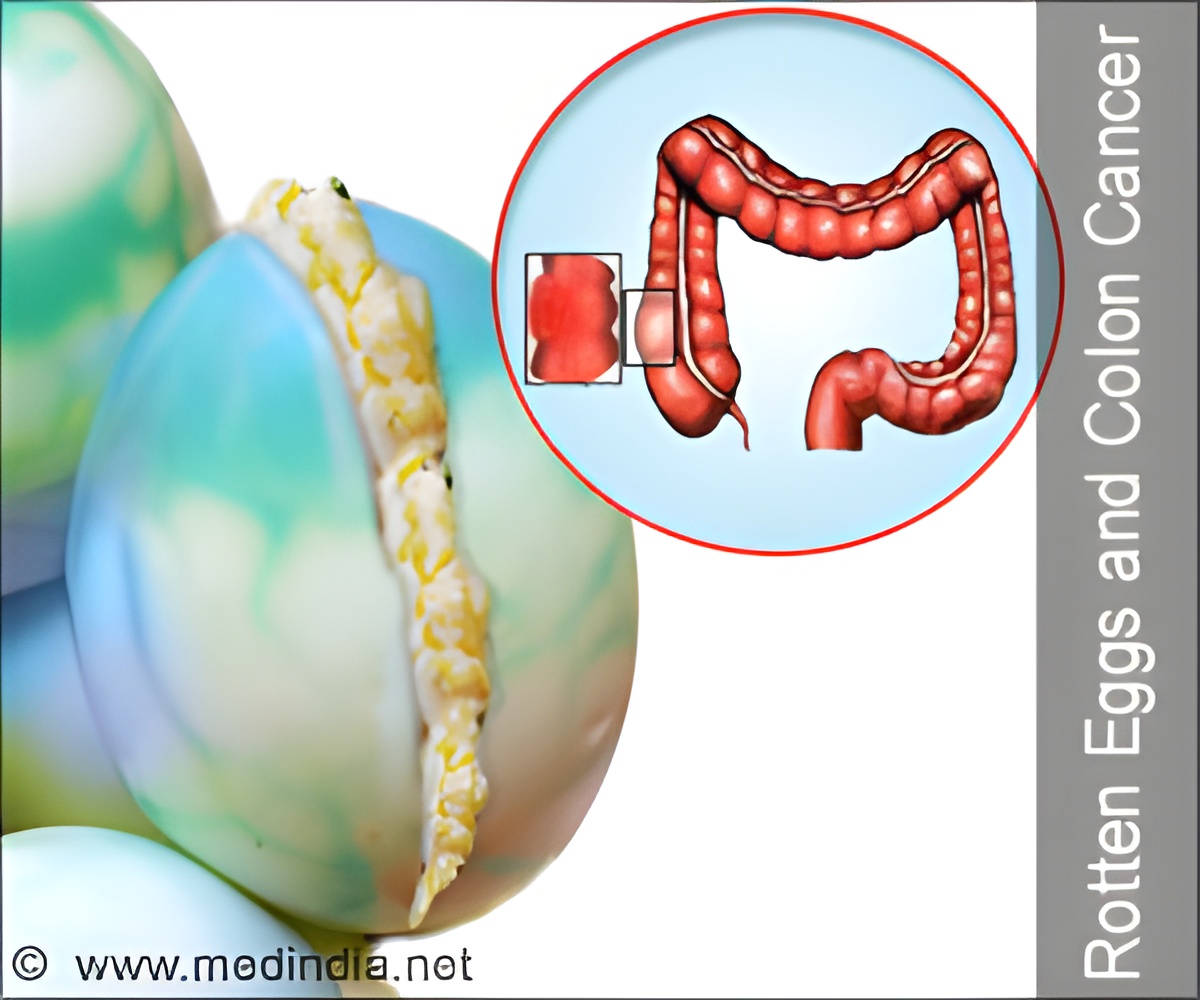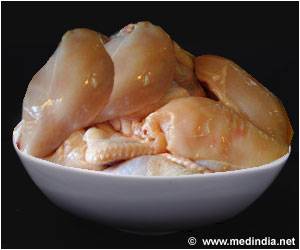Hydrogen sulfide, a pungent gas having a rotten-egg odor, may play a key role in the metabolism of colon cancer, a new study claims.

According to the study, colon cancer cells practically live on hydrogen sulfide gas. This gas which is produced by rotten eggs is needed in large amounts by the cells to survive and grow.
"They love it and they need it," UTMB professor Csaba Szabo, explained. "Colon cancer cells thrive on this stuff -- our data show that they use it to make energy, to divide, to grow and to invade the host."
The researchers linked the colon cancer hydrogen-sulfide production to CBS - a protein that is produced by colon cancer cells. Careful analysis revealed that the growth of colon cancer cells was hampered when the CBS was chemically blocked.
"Our work identifies CBS as a new anti-cancer target," UTMB professor and paper author Mark Hellmich, added. "By blocking CBS, we can fight colon cancer."
The researchers further revealed that by blocking CBS, they managed to demonstrate anti-colon cancer effects in mice. They also found that colon cancer cells, devoid of hydrogen sulfide gas, grew slowly, and had a considerably decrease in angiogenesis - a process by which a cancerous tumor produces more blood vessels to extract more nutrients and oxygen from the host.
Source-Medindia















